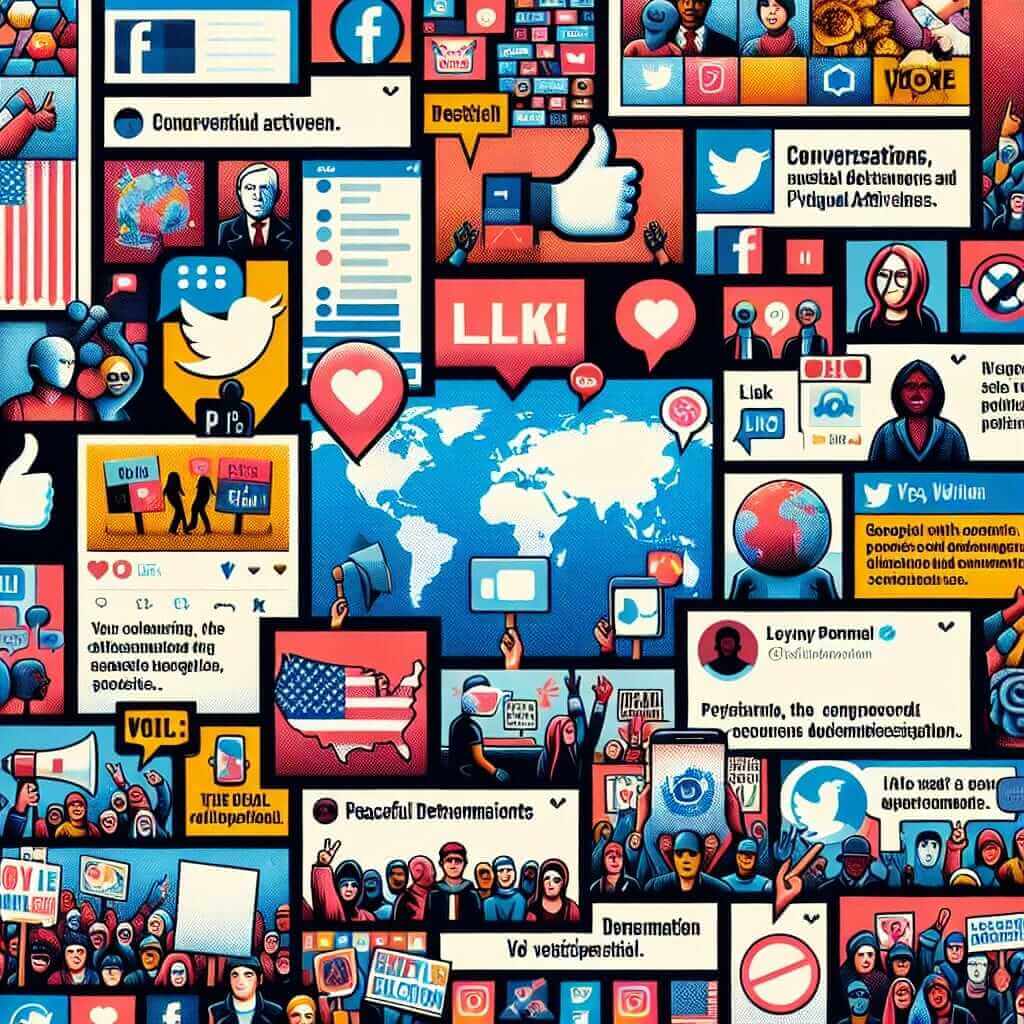The IELTS Reading test is a crucial component of the IELTS exam, designed to evaluate your ability to understand and interpret texts in English. Over the years, various topics have appeared in the test, ranging from scientific phenomena to social issues. One topic that has garnered attention recently is the impact of social media on political engagement. Given its relevance and popularity, it is likely that this subject could appear in future IELTS exams. In this article, we will explore this topic in depth, providing you with a comprehensive reading practice exercise to enhance your skills.
Practice Reading Exercise: Medium Text
Reading Passage
The Effects of Social Media on Political Engagement
Social media platforms have transformed the way we communicate and share information. Over the past decade, the rise of social media has had profound effects on political engagement worldwide. This phenomenon is particularly noticeable among younger generations, who are increasingly using platforms like Twitter, Facebook, and Instagram to express their political views, engage in debates, and participate in online activism.

One of the primary effects of social media on political engagement is the democratization of information. In the past, traditional media outlets controlled the flow of news and opinions, often limiting the perspectives that were available to the public. However, social media has changed this dynamic by allowing individuals to share their own viewpoints and access diverse sources of information. This has led to a more informed and engaged citizenry, as people can now easily access a wide range of perspectives on political issues.
Social media also plays a crucial role in mobilizing political movements. The Arab Spring, for example, was significantly driven by social media platforms, which allowed activists to organize protests and share information quickly and efficiently. Similarly, movements such as Black Lives Matter have used social media to raise awareness and galvanize support. These platforms provide a space for marginalized voices to be heard and have made it easier for individuals to come together and advocate for change.
However, the influence of social media on political engagement is not without its drawbacks. The spread of misinformation and fake news is a significant concern, as false information can quickly go viral and influence public opinion. Additionally, social media can create echo chambers, where individuals are only exposed to opinions that align with their own, reinforcing biases and polarizing communities. It is crucial for users to critically evaluate the information they encounter on these platforms to ensure that they are making informed decisions.
Despite these challenges, the overall impact of social media on political engagement is undeniable. It has empowered individuals to participate in political discourse, facilitated the organization of movements, and democratized the flow of information. As social media continues to evolve, its role in shaping political engagement will undoubtedly remain significant.
Practice Questions
Multiple Choice
-
What is one of the primary effects of social media on political engagement?
- A. Limiting the perspectives available to the public.
- B. Democratizing the flow of information.
- C. Reducing political participation among younger generations.
- D. Controlling the news and opinions.
-
Which example is given to highlight the role of social media in mobilizing political movements?
- A. Climate Change Activism.
- B. The Arab Spring.
- C. The Civil Rights Movement.
- D. Global Warming.
Identifying Information (True/False/Not Given)
-
Social media has decreased political engagement among older generations.
- A. True
- B. False
- C. Not Given
-
Social media platforms have made it easier for marginalized voices to be heard.
- A. True
- B. False
- C. Not Given
Matching Headings
- Match the following headings to the paragraphs (1-4):
- i. Challenges of Social Media in Politics
- ii. Democratization of Information
- iii. Rise of Political Movements
- iv. Introduction to Political Engagement and Social Media
Answer Keys
- B. Democratizing the flow of information.
- B. The Arab Spring.
- C. Not Given
- A. True
Matching Headings
- i. – Paragraph 4
ii. – Paragraph 2
iii. – Paragraph 3
iv. – Paragraph 1
Common Mistakes
Many test-takers struggle with identifying the author’s viewpoint and distinguishing between “True,” “False,” and “Not Given.” It’s essential to base your answers on the information provided in the text and not on your assumptions or knowledge. For matching headings, always ensure that the heading encapsulates the main idea of the paragraph.
Vocabulary
- Democratization (n.) [dɪˌmɒkrətaɪˈzeɪʃ(ə)n]: The action of making something accessible to everyone.
- Mobilizing (v.) [ˈmoʊbəlaɪzɪŋ]: Organizing people to take action.
- Misinformation (n.) [ˌmɪsɪnfərˈmeɪʃ(ə)n]: False or inaccurate information.
- Echo Chambers (n.) [ˈɛkoʊ ˈʧeɪmbərz]: Environments where a person only encounters information or opinions that reflect and reinforce their own.
Grammar
- Relative Clauses: “The Arab Spring, for example, was significantly driven by social media platforms, which allowed activists to organize protests and share information quickly and efficiently.”
- Formula: [Main clause + which + relative clause].
- Example usage: “These platforms provide a space for marginalized voices to be heard, which has democratized the flow of information.”
Advice for IELTS Reading Preparation
- Practice Regularly: Consistency is key. Incorporate reading practice into your daily routine.
- Expand Your Vocabulary: Learning new words can significantly improve your understanding of complex texts.
- Time Management: Practice completing reading tasks within the allotted time to improve your pace.
- Critical Reading: Focus on understanding the author’s intent and the main ideas, rather than just skimming for answers.